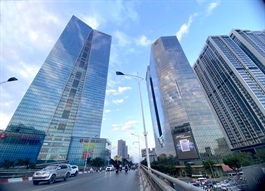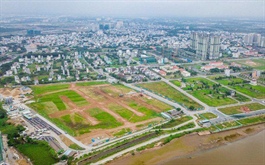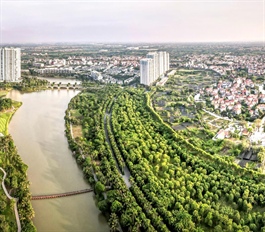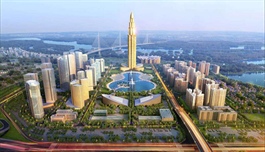Localities crack on with IP construction
Localities crack on with IP construction
Heavy investment into industrial park infrastructure is being made in the hopes of it becoming a significant source of revenue.
Last week the IPN5 facility was put into operation in the northern province of Hung Yen, with the total investment of $101 million and covering 192 hectares in the two districts of An Thi and Kim Dong. Tran Quoc Van, Chairman of Hung Yen People’s Committee, said, “This is a major provincial initiative that was executed swiftly, with the site cleared in just 15 months.”
The Hung Yen authorities anticipate that industrial park (IP) infrastructure like IPN5 will transform the land into a significant source of local income. Over a decade ago, the Red River Delta region specialised in wet rice cultivation. Now, however, it is attempting to increase investment and industrial growth. Although Hung Yen is merely 930 square kilometres, 16 IPs have already been planned.
In the first two months of this year, the industrial property segment has witnessed dynamic developments, with VSIP Nghe An investing in a 500ha IP for Tho Loc phase 1, and an IP in Hai Long-Thai Binh Economic Zone.
Dinh Thanh Phuong, head of business development at KCN Vietnam, said that the developer intends to construct additional parks in strategic locations such as Bac Ninh, Bac Giang, and Hai Duong provinces. “The recent reopening of China is creating advantageous circumstances for investors to travel freely and conduct surveys of possible locations for company growth. In response to the requirement to grow the size of logistics business units, the warehouse service market is becoming increasingly busy as well,” Phuong said.
However, the capital flows into IP infrastructure in Vietnam vary by region. Tran Thi Thanh Tam, director of Danang Department of Planning and Investment, said: “The majority of foreign-invested projects in Danang are focused on the industrial sector, while the overall investment capital for new projects has declined.”
In 2022, out of 43 newly licensed foreign-invested enterprises in Danang with the combined capital of more than $69 million, only three projects with the combined capital of more than $65 million entered IPs.
The building of new IPs in Danang is dipping. According to Tam, three IPs were authorised by Danang for planning to begin in 2019 but have not secured an investor – Hoa Cam IP phase 2, Hoa Ninh IP, and Hoa Nhon IP. All three were extensively bid on by a small group of infrastructure investors. However, the contractors failed to satisfy the dossier’s criteria, compelling the Danang authorities to postpone the certification round of investor selection. Presently, Danang has six IPs that are essentially occupied.
Numerous experts and property developers in Vietnam estimate that the average rate of investment attraction for a project in an IP is $4.6 million per leased hectare of industrial property. In addition, it is still extremely typical for projects to be delayed and land leasing to exceed demand, all of which negatively impact efficiency.
Nguyen Dinh Tho, director of the Institute of Strategy and Policy on Natural Resources and Environment, said that the strategic planning of IPs in Vietnam “lacks uniformity on the inter-regional and inter-provincial scale.” According to Tho, designs often fail to take into account the environment and ecology, transportation infrastructure, and tech and social infrastructure, in the interest of rational utilisation of resources and their own conservation.
“Some IPs have not been deployed on time and, in several locations, allotment of land to indigenous peoples is wasteful. Compensation for site clearance in certain IPs is still challenging, dragging down the pace of infrastructure building and land utilisation,” Tho added.
The government is implementing preferential policies to enable successful investor attraction for industrial property without violating international obligations. In light of this, Tho said, many investors anticipate that comprehensive revision of Decree No.82/2018/ND-CP from 2018 on IP administration would address aforementioned deficiencies.
Foreign direct investment (FDI) in IPs and economic zones currently represents around 35-40 per cent of Vietnam’s newly registered FDI. According to the Ministry of Planning and Investment, it accounts for 70-80 per cent of the overall registered capital in Vietnam, if just the manufacturing and processing sector is included.


























